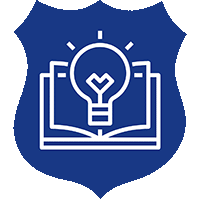


Amalorpavam Higher Secondary School follows a structured and elaborate thematic approach to enrich the learning experience of the toddlers. Our unique seven petal approach ensures holistic development of every child. Infants experience, express, and perceive emotions before they fully understand them.
In learning to recognize, label, manage, and communicate their emotions and to perceive and attempt to understand the emotions of others, children build skills that connect them with family, peers, teachers, and the community.
These growing capacities help young children to become competent in negotiating increasingly complex social interactions, to participate effectively in relationships and group activities, and to reap the benefits of social support crucial to healthy human development and functioning.
The core features of 7 PETAL LEARNING METHODOLOGY include the ability to identify and understand one’s own feelings, to accurately read and comprehend emotional states in others, to manage strong emotions and their expression in a constructive manner, to regulate one’s own behavior, to develop empathy for others, and to establish and maintain relationships.

Developing PERSONAL – awareness helps kids understand their own needs, identify the skills they need to be successful in life, manage emotions responsibility in activities both inside and outside school , and develop empathy towards others–especially peers who may have different abilities or backgrounds than theirs. A self-aware person understands their own identity and values, how they are different from others around them. They understand themselves on a personal level as well as an interpersonal one.

Children have a thirst for language and communication. Communication allows the child to express her needs and ideas to others. Through language we are able to cooperate, collaborate, receive knowledge and pass knowledge to others. Children go through a series of stages to acquire language. A firm grasp of writing and speaking will allow students to progress with their learning. Students use language materials to explore letters, sounds, handwriting, and eventually spelling and writing.

Cognitive development means the growth of a child’s ability to think and reason. The
Sensorimotor stage (0–2 years old) and Preoperational stage (2–7 years old) are very sensitive. During this stage the child develops the ability to think in concrete ways. The school pays utmost care and provides necessary facilities and provisions to the kids to have cognitive development in the right aspects.

A tremendous amount of social and emotional development takes place during early childhood. Children start to understand who they are, what they are feeling and what to expect when interacting with others. It is the development of being able to: Form and sustain positive relationships. Experience, manage and express emotions. Our curriculum activities provide such a platform where the kids interact with other children, mingle, play, sing and fine tune their foundational behaviour principles in the school.

Nurturing Individuals focuses on encouraging creativity and nurturing latent talent in every child. Our curriculum encourages children to express their creative ideas by providing them opportunities to dance, sing, draw, paint, create, tell stories, act, play sports and games. A key aspect of nurturing individual potential is an understanding of attachment theory and how a child’s early experiences can have a significant impact on shaping their own goals for their future.

Fine motor skills are finger and hand skills such as writing, cutting, opening lunch boxes, and dressing oneself. The development of these skills relies upon the age appropriate development of physical skills providing the stable base from which the arm and hand can then move with control. Our curriculum with the fun activities, games, yoga and play-way learning methods aim and tune their fine motor development in perfection.

It involves the larger, stronger muscle groups of the body. In early childhood, it is the development of these muscles that enable a baby to hold his/her head up, sit, crawl and eventually walk and run. Some of the examples of gross motor skills in the locomotion category include rolling, crawling on hands and knees, scooting, walking, running, climbing, leaping, jumping, and hopping. Our systematically focused curriculum at Kindergarten filled with fun activities and games include even higher level skills such as climbing, skipping, and throwing and catching a ball.